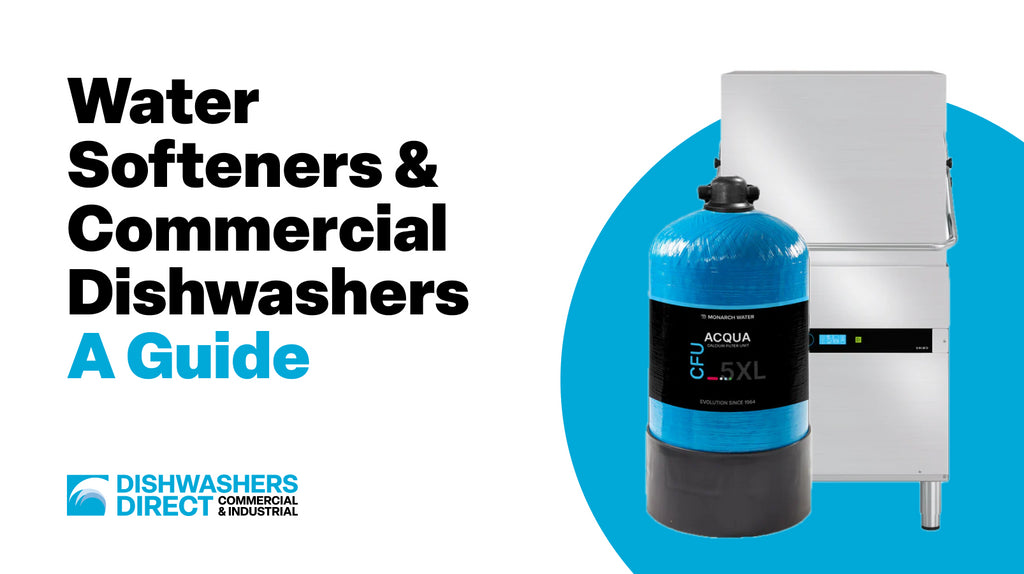Should I use a water softener for my commercial dishwasher?
Posted by SAMUEL DEAKIN

When running a commercial kitchen, efficiency and cleanliness are critical. But have you ever considered how water quality can have an impact on this?
If you’re noticing cloudy glassware, chalky residue on dishes, or limescale build up in your commercial dishwasher, you may be dealing with hard water.
This brings us to the question: should you use a water softener in your commercial dishwasher?
What is Hard Water?
The simple definition of water hardness is the amount of dissolved calcium and magnesium in the water. It occurs in the UK where the bedrock is made of sedimentary rocks like limestone, chalk, flint, and sandstone. The Southeast of the UK is made up primarily of chalk and limestone and therefore has the hardest water. This mineral build up is what we commonly call limescale.
The Impact of Hard Water
Hardwater can reduce the lifespan of industrial and commercial equipment. This is due to the minerals being deposited and hardening on the appliances they come into contact with. The build-up of minerals will lead to decreased efficiency of equipment and increased energy costs. In addition to affecting your machines, hard water can also damage clothes, etch glass, bind with detergents causing odors, and cause chalky residue or spots to appear on dishes.
To maintain equipment, you can periodically flush the system and replace the water in the boiler, but this means using water, energy, and chemicals, therefore also flushing money down the drain.
Therefore, it is essential for businesses to take appropriate measures to mitigate the effects of hard water.
How A Water Softener Works
A water softener works by removing the calcium and magnesium ions responsible for hard water and replacing them with sodium or potassium ions. This is done through a process called ion exchange.
What are the Benefits of Using a Water Softener for Your Commercial Dishwasher
Improved Cleaning
The first, and most obvious, benefit you’ll notice is that of your dishes being cleaner after a cycle in the dishwasher. Soft water allows detergents to work more effectively eliminating spots and streaks on your dishes that would’ve been left behind by hard water.
Extended Lifespan
Limescale build up from hard water can damage the internal components of your dishwasher. By using a water softener, you prevent mineral deposits forming and building up, therefore extending the lifespan of your commercial dishwasher. This will also reduce maintenance costs and callouts.
Saves on Detergents
Soft water enhances your cleaning products and detergents, meaning you’ll need to use less to get the same, or better, results. This will save you more money in the long run. This also lessens the environmental impact of your business due to less chemical usage.
More Energy Efficient
A dishwasher running on hard water must work hard and consume more energy. The build-up of limescale can block and insulate heating elements making it harder for them to reach the correct operating temperature. With soft water your dishwasher can operate more efficiently and save you money on your utility bills.
Less Damage = Lower Maintenance Costs
Because of hard water causing limescale build-ups, hard water can lead to more downtime, more service issues, or malfunctioning parts in your commercial dishwasher. Using a water softener minimises these problems meaning less repair calls out and part replacements saving you money in the long run.
Is a Water Softener Worth it?
Whilst the initial cost may be high the money you save in the long term will make it worth it. From reduced energy bills, less spending on detergent, less repair call outs and maintenance costs, it’s hard to argue against making that investment.
If your kitchen is located in a hard water area a water softener will make a noticeable difference in both performance and long term savings.